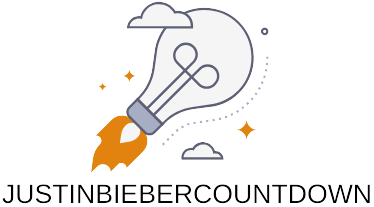Table of Contents
ToggleIn a world where distractions lurk around every corner and self-doubt throws surprise parties, mastering your mindset can feel like trying to tame a caffeinated squirrel. But fear not! Mindset mastery isn’t just for motivational speakers or yoga enthusiasts. It’s the secret sauce that can transform everyday challenges into stepping stones for success.
Understanding Mindset Mastery
Mindset mastery involves cultivating a mental framework that enhances resilience and confidence. Individuals can transform challenges into opportunities through this powerful skill.
The Definition of Mindset Mastery
Mindset mastery refers to the ability to control one’s thoughts, beliefs, and attitudes. This skill enables people to respond positively to adversity, maintaining focus on their goals. Those who achieve mindset mastery recognize their potential and act with intention. Practicing it involves continuous self-reflection and adaptation.
The Importance of a Growth Mindset
A growth mindset plays a crucial role in personal development. Embracing this mindset encourages individuals to view failures as learning experiences. People with a growth mindset persist despite obstacles, leading to greater achievement. Research indicates that fostering this type of mindset can boost motivation and enhance problem-solving skills. In turn, these qualities contribute to overall success in various areas of life.
Key Principles of Mindset Mastery

Mastering one’s mindset involves key principles that foster growth and resilience. Two fundamental aspects are self-awareness and resilience combined with adaptability.
Self-Awareness
Self-awareness stands at the core of mindset mastery. Understanding one’s thoughts and emotions promotes personal growth. It helps individuals identify their strengths and weaknesses clearly. Engaging in regular self-reflection fosters this awareness, allowing individuals to recognize patterns in their behavior. Journaling or meditative practices can enhance this process, providing insights that lead to better decision-making. Ultimately, increased self-awareness empowers individuals to take control of their responses to various situations effectively.
Resilience and Adaptability
Resilience and adaptability form a dynamic duo in achieving mindset mastery. Resilience refers to the ability to bounce back from setbacks, while adaptability involves adjusting to changing circumstances. Facing challenges with a resilient attitude encourages individuals to view obstacles as opportunities. Cultivating a flexible mindset further enhances this ability, enabling quicker responses to unexpected events. Practicing strategies like mindfulness and positive affirmations can strengthen resilience. Over time, individuals equipped with these skills navigate life’s ups and downs more confidently.
Techniques for Developing Mindset Mastery
Mindset mastery involves practical techniques that empower individuals to harness their thoughts and emotions effectively. Implementing specific strategies can lead to significant personal growth and resilience.
Goal Setting
Effective goal setting lays the foundation for mindset mastery. Individuals should establish SMART goals—Specific, Measurable, Achievable, Relevant, and Time-bound. This framework ensures clarity and focus, allowing them to map out actionable steps toward achieving their objectives. Breaking larger goals into smaller, manageable tasks enhances motivation and provides a sense of accomplishment with each completed step. Regularly reviewing progress keeps individuals engaged and accountable. Adjustments to goals can reflect changes in circumstances or aspirations, ensuring they align with personal growth.
Positive Affirmations
Positive affirmations play a crucial role in shaping a resilient mindset. By consistently repeating empowering statements, individuals can influence their self-perception and cultivate a positive outlook. Affirmations should feel personal and resonate deeply, supporting individual goals and values. Techniques may include writing them down or using them during meditation for greater impact. Embracing this practice encourages individuals to reframe negative thoughts, enhancing overall confidence and self-efficacy. As the positive mindset strengthens, individuals find it easier to confront challenges head-on and maintain focus on their aspirations.
Applying Mindset Mastery in Daily Life
Employing mindset mastery enhances daily life in practical ways. Techniques like mindfulness and recognizing limiting beliefs transform understanding of oneself and life’s challenges.
Mindfulness Practices
Mindfulness practices anchor individuals in the present moment, promoting clarity and focus. Techniques such as deep breathing, body scanning, or guided meditation facilitate relaxation and reduce stress. Engaging in these activities helps individuals become aware of their thoughts and feelings without judgment. Regularly incorporating mindfulness routines into daily schedules cultivates patience and resilience, ultimately leading to improved emotional well-being. Awareness of one’s inner dialogue also plays a critical role in shaping responses to external events, reinforcing the benefits of being present.
Overcoming Limiting Beliefs
Overcoming limiting beliefs empowers individuals to pursue their goals with confidence. Recognizing negative self-talk marks the first step in dismantling these beliefs. Individuals can challenge and replace unhelpful thoughts with positive affirmations that nurture self-belief. Reflection on past experiences that contradict limiting beliefs fosters a growth mindset, highlighting resilience and achievements. Establishing supportive environments through relationships further strengthens this process, providing encouragement during challenging moments. Continuous practice leads to more robust self-awareness and an expanded capacity to seize opportunities typically overshadowed by doubt.
Mastering one’s mindset is a transformative journey that empowers individuals to navigate life’s challenges with confidence and resilience. By embracing principles like self-awareness and adaptability, they can cultivate a mental framework that not only fosters personal growth but also enhances their ability to turn setbacks into stepping stones.
Implementing practical techniques such as SMART goal setting and positive affirmations can further reinforce this mindset. As individuals commit to continuous self-reflection and practice, they’ll discover new opportunities for success that were once hidden behind self-doubt. Ultimately, mindset mastery isn’t just a skill; it’s a way of life that opens doors to endless possibilities.






